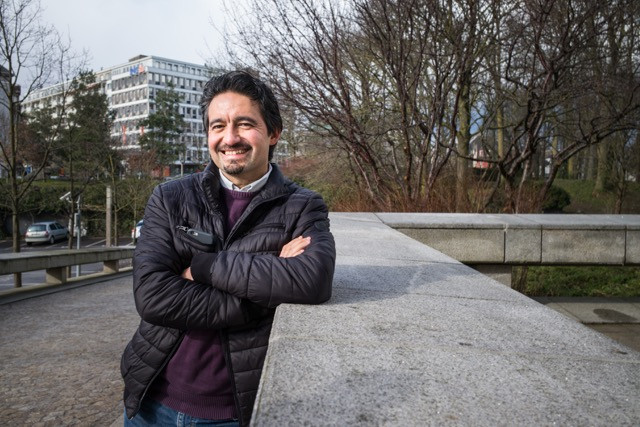Whilst the scale of asylum applications may be greater than in previous years, the issue is by no means a new one.
In 1973, Andres Coro’s family fled Chile when a military coup ousted the democratically elected (and socialist) president, Salvador Allende, and led to a 17-year dictatorship run by General Augusto Pinochet. “My father was just at the beginning of his political career and was fortunately on the green list of persons authorised to leave the country,” explains Andres.
“As my father had worked in Belgium during the late 1960s, we initially moved to a monastery in Louvain, where we lived for two years.” The monastery was home to a variety of refugees from South America, Africa and Asia. “I remember that at first my family was not housed together at all. We slept in old style dormitories with many other families. It wasn’t ideal, but we were safe,” says Andres.
Hoang was born in Vietnam and moved to Luxembourg with his family to escape Kháng chiên chông Mỹ (the resistance war against America). “At first it was not easy to adapt because of the language barrier, but we had very kind neighbours who helped my family learn Luxembourgish and allow us to integrate into society here,” describes Hoang.
Andres agrees that the lack of language skills can be very isolating when you first move to a new country. “In the beginning my family was living in a Dutch-speaking area and that was very difficult for my parents,” he states. “Fortunately we eventually moved to an apartment in Louvain-la-Neuve and it was much easier for my family to speak French and do day-to-day activities.”
One incident
Whilst Andres and Hoang do not personally remember any bullying or ill treatment due to their refugee status, Andres does recall one particular situation at the monastery.
“We were all gathered around watching TV and someone threw a brick at the monastery window, glass shattered everywhere and everyone fell silent. My father and some other men took off outside looking for the perpetrators, but to no avail. That’s the only time I remember any ill feeling toward us refugees.”
“Luxembourg is my home”
Both Hoang and Andres were schooled in Europe and after a short period of time took local nationality; Hoang, Luxembourger, and Andres, Belgian. They both now have successful careers in the grand duchy’s financial sector.
“Luxembourg is my home,” Hoang says. “I grew up here, I was educated here and my life is here. It’s nice to return to Vietnam for holidays, but I don’t consider myself Vietnamese.”
After Pinochet was overthrown, Andres and his family often returned to Chile for holidays, but over the years he has found that he goes less and less. “My father would not return to Chile permanently, nor would I.”
“I think of myself as a Chilean with Belgian nationality”, states Andres. “When I am in Chile, I am like a fish in water, but it is not somewhere I would want to live. The gap between the rich and the poor in Chile is huge and the middle class are getting poorer,” he explains. “The quality of life here is not comparable.”
Whilst Hoang does not have any specific thoughts on the current immigration situation in Luxembourg, Andres is sad that politicians are using it as a key talking point. “I am worried that the younger generations do not have a political conscience and are not as tolerant as those in the past,” he says with a sigh. “The most important thing to show is human solidarity; never forget the same thing could happen to you!”
This article was first published in the April 2017 issue of Delano magazine. Be the first to read Delano articles on paper before they’re posted online, plus read exclusive features and interviews that only appear in the print edition, by subscribing online.
